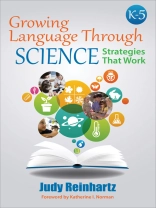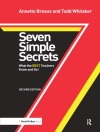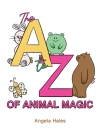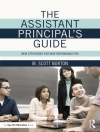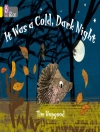Foster life-long teacher learning embedded in effective teaching practices and the science standards
Science is a natural motivator and an academic engine for utilizing language, but it is the teacher who is the key to fostering the innate curiosity in each learner. Growing Language Through Science offers a model for contextualizing language and promoting academic success for all students, particularly English learners in the K-5 science classroom, through a highly effective approach that integrates inquiry-based science lessons with language rich hand-on experiences. You’ll find
- A wealth of instructional tools to support and engage students, with links to the Next Generation Science Standards (NGSS)
- Presentation and assessment strategies that accommodate students’ diverse needs, while encouraging them to use communicative language, speaking, listening, reading, and writing
- Ready-to-use templates and illustrations to enrich the textual discussion
- Field-tested teaching strategies framed in the 5Es used in monolingual and bilingual classrooms
- Reflection exercises that enhance teacher instructional decision making.
Use this timely resource to build students’ science and language skills simultaneously – while helping them find the joy in learning.
‘This book is timely, informative, and accessible to the practitioner. As an administrator, I would love to use this resource with our staff as a way to generate dialogue around the NGSS and the implementation of science as the content for language arts integration.’
— Thelma A. Davis, Principal
Clark County School District, Las Vegas, NV
‘The book’s major strengths are taking multiple teaching strategies that are proven to be beneficial for English learners and putting them together in an easy to understand format, allowing the teacher a view of what a lesson should look like, as well as numerous, ready-made lessons to follow.’
— Lyneille Meza, Coordinator of Data & Assessment?
Denton ISD, Denton, TX
Tabella dei contenuti
Part I. Science Teaching and Learning Using a Language Lens
Chapter 1. Setting the Stage for Growing Language Through Science
Chapter 2. Effective Science Teaching and Learning: Bridging Research and Practice
Chapter 3. Enhancing Science Teaching and Learning Through Inquiry and the 5Es
Part II. Science and Language in the Science Classroom: A Good Pairing
Chapter 4. The Power of Questions
Chapter 5. Doing Science
Chapter 6. Navigating Through the Practices, Crosscutting Concepts, and Core Ideas: Physical Sciences and Earth and Space Sciences
Chapter 7. Life Sciences Across the Grades
Chapter 8. Games: A Context for Meaningful Science Learning and Communicative Language Usage
Part III. Enhancing the School–Home Connection
Chapter 9. School–Home Science Connection
Part IV. Assessing Learning
Chapter 10. How Do We Know That Students Know?
Circa l’autore
Judy Reinhartz’ career spans nearly five decades in K-16 education, as an elementary and middle school science teacher, secondary school biology and department science chair, and a professor of undergraduate and graduate science education, curriculum development, research, educational leadership and supervision, and instructional strategy courses. She also is a researcher, writer of numerous articles, chapters, and books, presenter, consultant, and director of centers for science, research, effective teaching and learning, and clinical experiences and student teaching. Judy has developed a culture of inquiry and worked with diverse populations of students, teachers, faculty members, staff, members of the business community, and parents in varied educational settings at the local, state, national, and international levels. Throughout her career, she has been a role model for collaboration. She has presented a myriad of research and research into practice papers at professional meetings and conducted professional development for teachers, many targeting science teaching to diverse learners. Judy is a former associate dean and Professor Emeritus at The University of Texas at El Paso and her degrees include a doctorate from University of New Mexico, master’s from Seton Hall University, and bachelor’s from Rutgers University. She is the recipient of the Outstanding Teacher Award from The University of Texas at Arlington where she also was a professor for many years.
